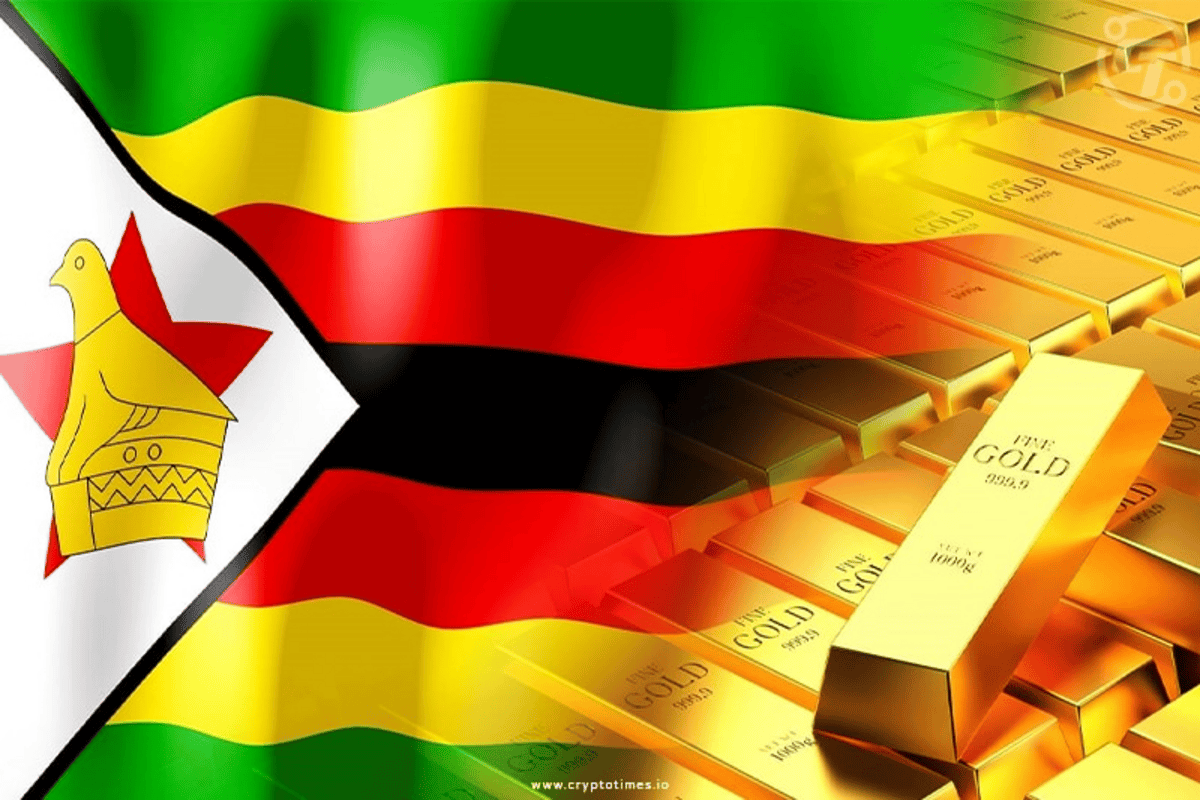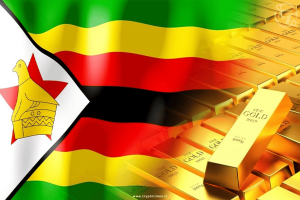Join Our Telegram channel to stay up to date on breaking news coverage
Analysts deem Zimbabwe’s Gold-Backed Digital Token inadequate in addressing the country’s currency challenges. Economists claim the token doesn’t provide a comprehensive solution to Zimbabwe’s currency woes, leaving the underlying issues largely unresolved.
Macroeconomic Measures Outweigh Gold-Backed Tokens for Zimbabwe’s Currency Stability
The country’s currency could be stabilized and its instability addressed by implementing effective macroeconomic policies, like increasing interest rates and reducing the deficit. According to them, these measures could alleviate the currency’s challenges.
Zimbabwe’s gold-backed digital token won’t stabilize the local currency, as the central bank hopes, say two economists.
Issuance and Usage of Gold-backed Digital Tokens pic.twitter.com/6P8lECPQTW
— Reserve Bank of Zimbabwe (@ReserveBankZIM) April 28, 2023
On May 8, the Reserve Bank of Zimbabwe introduced these digital tokens, representing electronic money backed by gold. Initially, investors can hold and exchange these tokens; in the future, they can trade and make payments with them.
As reported by the Sunday Mail in April, the Zimbabwean dollar would be stabilized by issuing the digital token to stabilize it. The Zimbabwean dollar collapsed in 2008, resulting in record-breaking inflation rates.
Zimbabwe’s Currency Crisis: Digital Tokens Not a Cure, Experts Warn
Zimbabwe has been suffering from hyperinflation, which has been widely reported. In 2009, the country had to introduce a new currency, the Zimbabwean dollar (ZWL), after removing twelve zeros from its previous currency (ZWD). Due to the devaluation of the local currency, inflation increased to 175.8% in June 2022 for a limited range of goods. Digital tokens might not solve Zimbabwe’s currency crisis, say researchers.
It’s not the panacea to the challenges it’s wrestling,
Said Prosper Chitambara, senior research economist at the Labour and Economic Development Research Institute of Zimbabwe (LEDRIZ).
Gold-backed digital tokens might not be enough to address the main issue at hand, which is the growth of money supply, according to experts. Chitambara says a digital token alone can’t reduce the amount of money in circulation unless macroeconomic policies are implemented.
Zimbabwe’s Currency Challenge: Gold-Backed Tokens and Foreign Exchange Issues
In Zimbabwe, you can use both the new Zimbabwean dollar and the U.S. dollar. Chitambara, for example, views the local currency, the “Zim” dollar, as unstable and prefers to exchange it for the U.S. dollar immediately.
Central bank officials want the gold-backed digital currency to replace foreign currency demand. Foreign currency isn’t just used to import goods and services and to preserve value. Recently, foreign currency has been hard to come by.
Like in Zimbabwe, people always try to preserve their purchasing power during hyperinflation. RBZ Governor John Mangudya says the gold-backed digital token will fulfill the need for a stable store of value.
Zimbabwean dollars have depreciated because of the excessive supply of U.S. dollars. According to Varun Paul, the director of the central bank digital currency and market infrastructure at Fireblocks, an institutional crypto custody platform, introducing a gold-backed digital currency reduces reliance on the U.S. dollar and eliminates exchange rate volatility.
However, Paul said a gold-backed digital token couldn’t solve Zimbabwe’s currency problems alone.
Zimbabwe’s Currency Challenge: Assessing Gold-Backed Tokens and Policy Reforms
Chitambara and Paul say the gold-backed digital token might be a good store of value and a way to diversify portfolios. Despite its slow adoption, it doesn’t solve the hyperinflation problem alone.
135 applications worth around $12 million were received within four days of the token’s release. Despite this, the dollar depreciated against the currency. Since June, only 35 new applications have been reported for the token.
Chitambara and Paul say Zimbabwe needs to implement sound policies to solve its local currency crisis. Strong macroeconomic management is essential, they say.
According to Chitambara, the Reserve Bank of Zimbabwe (RBZ) has implemented a restrictive monetary policy, raising interest rates and bank reserves while keeping fiscal policy expansionary. Even though the money supply has been controlled, public spending has kept growing.
Instead of relying solely on gold-backed digital tokens, experts suggest controlling money supply growth to stabilize the local currency.
Zimbabwe’s government hasn’t supported the idea of abandoning its local currency. Some economists say it should be abandoned. IMF, which is in talks with Zimbabwe about its debt with international financial institutions, is also skeptical about the gold-backed digital token.
IMF staff would require more details and information about the design, implementation, and operation of RBZ’s gold-backed digital token initiative, and safeguard policies to ascertain the efficacy of the proposed measure,
In response to a question about gold-backed digital tokens, the IMF said.
Read more:
Join Our Telegram channel to stay up to date on breaking news coverage


